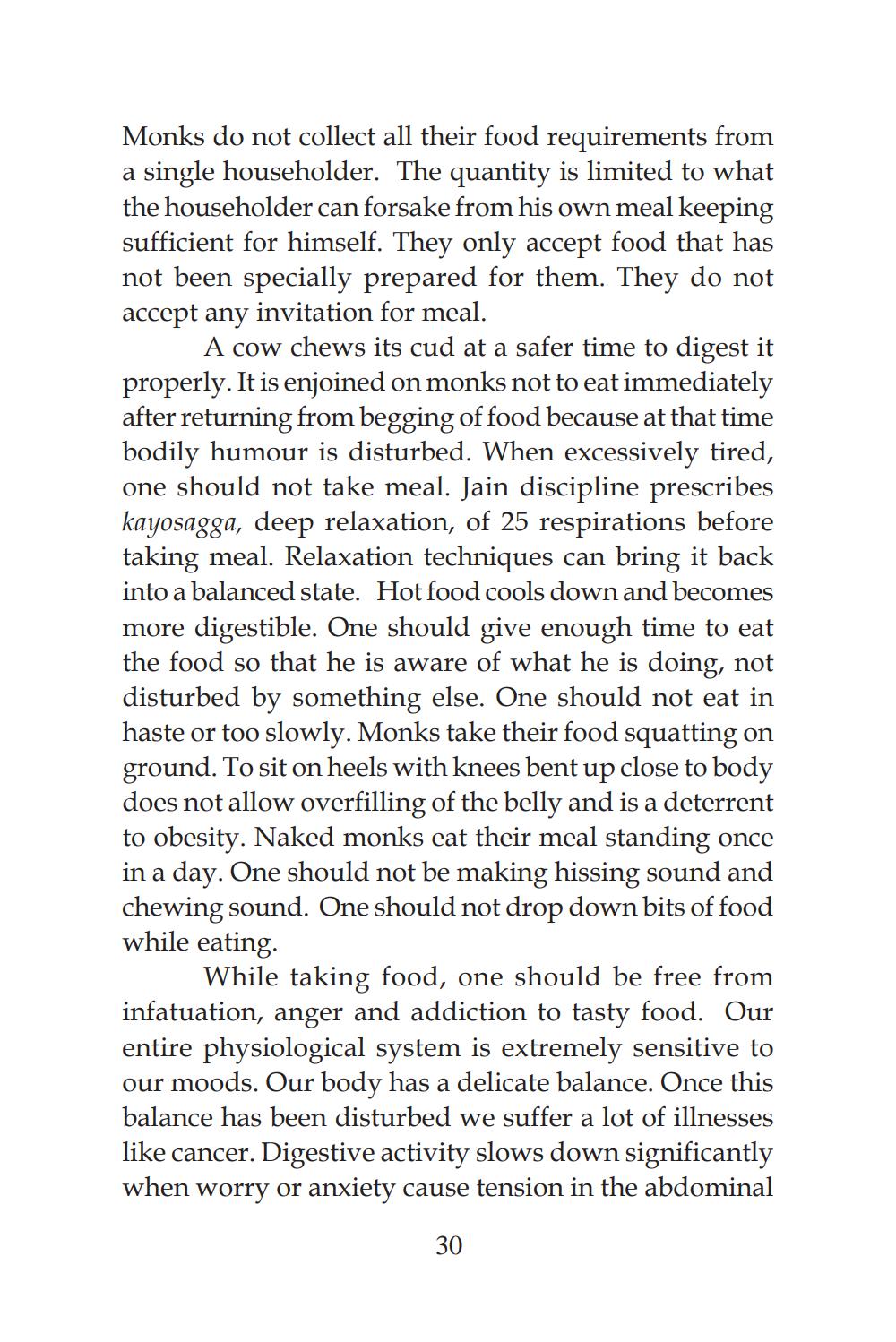________________
Monks do not collect all their food requirements from a single householder. The quantity is limited to what the householder can forsake from his own meal keeping sufficient for himself. They only accept food that has not been specially prepared for them. They do not accept any invitation for meal.
A cow chews its cud at a safer time to digest it properly. It is enjoined on monks not to eat immediately after returning from begging of food because at that time bodily humour is disturbed. When excessively tired, one should not take meal. Jain discipline prescribes kayosagga, deep relaxation, of 25 respirations before taking meal. Relaxation techniques can bring it back into a balanced state. Hot food cools down and becomes more digestible. One should give enough time to eat the food so that he is aware of what he is doing, not disturbed by something else. One should not eat in haste or too slowly. Monks take their food squatting on ground. To sit on heels with knees bent up close to body does not allow overfilling of the belly and is a deterrent to obesity. Naked monks eat their meal standing once in a day. One should not be making hissing sound and chewing sound. One should not drop down bits of food while eating.
While taking food, one should be free from infatuation, anger and addiction to tasty food. Our entire physiological system is extremely sensitive to our moods. Our body has a delicate balance. Once this balance has been disturbed we suffer a lot of illnesses like cancer. Digestive activity slows down significantly when worry or anxiety cause tension in the abdominal
30




